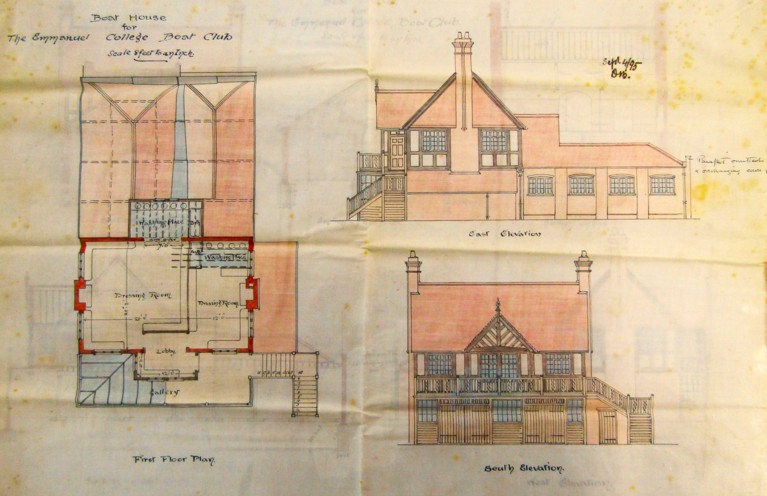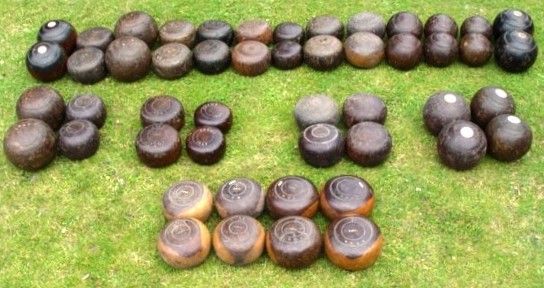Blog
1 May 2024
B is for … Boathouse

The Emmanuel Boat Club, formed in 1827, did not acquire its own premises until the 1890s. Until then it had ‘cheerfully suffered the inconvenience’ of sharing Foster’s boat house with other colleges, but in 1894 a riverside site was acquired, upon which stood a dilapidated boathouse and several ramshackle cottages. In the 1895 college Magazine, readers were informed that: ‘The plot secured by the College and granted for the use of the Boat Club is situated just below the Cutter Ferry’. An appeal was launched to raise £1200, the estimated cost of constructing a new boathouse. The architects were Marshall and Vickers of Bedford Square, London, who produced ‘an effective design’. A year later the Boat Club was able to report that ‘it was with great pleasure that we got into our new boat house at the beginning of this term [Michaelmas 1896]; we need not describe it, as by this time there are very few who have not seen it’. Thanks were expressed to the ‘many old members of the boat club who have responded so heartily to the appeal’. The boathouse underwent a ‘splendid’ extension and refurbishment’ in 1994 under the aegis of the Master, Lord St John of Fawsley. The 1896 half-timbered frontage was retained, however, and the new sections were designed ‘to complement in form and materials the original boathouse…’. According to Lord St John, the building’s ‘blue and white exterior has become one of the dominating sights of the river’.
B is for … Bowls
The first Master of the college, Laurence Chaderton, was said by his biographer William Dillingham, writing in Latin, to have enjoyed pila utraque, but it is impossible to know whether this last phrase refers to bowls, or some other ball game(s). Bowls was certainly played at Emmanuel from its earliest days, if the antiquary John Aubrey can be relied upon. In his most well-known work, Brief Lives, he relates that the famous Elizabethan theologian Lancelot Andrews caught Emmanuel’s ‘zealous Preachers’ playing bowls in the Fellows’ garden on the Sabbath. Bowling was a notorious betting game, which explains Aubrey’s dismissal of the Emmanuel Fellows as ‘hippocrites’. Playing bowls on Sundays would, in fact, be banned by a Royal Declaration of 1618. The game never went out of fashion at Emmanuel, however, and is still played in the Fellows’ Garden. The college has a fine collection of woods, dating back to the late eighteenth century. A few of these quaint old bowls (‘mince-pie’ being a formerly popular shape) bear the initials or name of their original owners, e.g. ‘Blackall’ (Samuel, Fellow 1794-1812) and ‘RTC’ (Robert Towerson Cory, Master 1797-1835). The Parlour wager books record many bets made among the Fellows about bowling. On 20 May 1800, Richard Brassey, a fellow commoner student, lost the following bet: Todd v. Brassey - Blackall with three bowls will beat Brassey & Rogers two games out of three. N.B. By. & Rs. have the jack every lead. (Todd’s evidence - Blackall played one game & won it, Brassey refused to play any more.)
Amanda Goode, College Archivist

